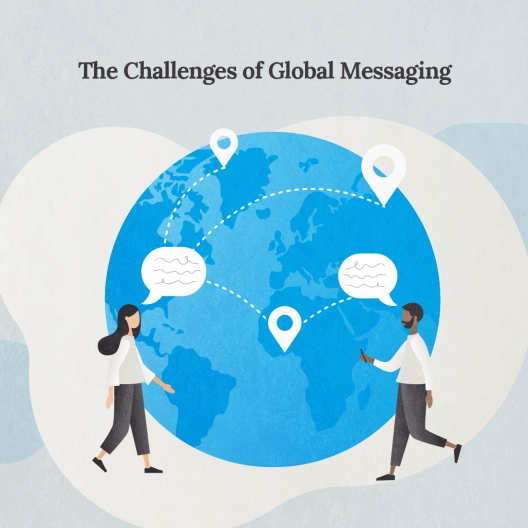To Agency or Not to Agency?

“The agency of record is dead as the dodo.” — Forbes, May 2015
“The reports of our death have been greatly exaggerated.” — TriComB2B, Sept. 2018
I read an article the other day about why you should move your marketing functions in-house. Truthfully, I hate these types of articles. I work for a great agency, after all, and I see the value we can deliver every day.
Determining whether to bring efforts in-house or outsource to an agency has always been a challenge. Philosophies continually change, and decisions are often made based on executives’ past experiences. Some see extensive, internal marketing headcount as an SG&A no-no. Others believe the value of a fully captive team can’t be matched by third parties. Still others seek a more balanced approach for getting things done. The answer for every company seems to be slightly different; each choice comes with its own set of pros and cons.
I won’t try to come off as objective in this blog because I can’t. I work for a great agency; we deliver great work to our clients. I’m pro-agency, clearly. But rather than tell you it’s just a better way to go, I’ll offer you five compelling reasons to consider using an agency. For good measure, I’ve also offered counterpoints in favor of in-house resources.
The Five Most Important Reasons to Use a Marketing Agency
1. Fresh Perspective
You’ve heard the phrase “internal exhaust,” which doesn’t sound good. On the opposite spectrum is the phrase “a breath of fresh air.” Now, that sounds great! Agencies work on a broad range of programs and projects every week. Their creative teams spend countless hours conceiving novel approaches to marketing problems of all types. Some have worked at more than one agency over their careers. We are constantly attending conferences, watching videos, and reading articles about new marketing and advertising ideas and concepts. We live and breathe it every day. To paraphrase Farmers Insurance, “We know a thing or two because we’ve seen a thing or two.”
I talked to our agency principal, Chris Eifert, about his experience running in-house marketing teams. He stated, “It’s just very hard to extract yourself from the day-in/day-out business requirements of working in-house. Finding time for outside air is nearly impossible once you get pulled into the meeting and administrative culture that can be prevalent in corporate environments. I always ended up going outside for ideas and expertise because we just couldn’t find the time. And it wasn’t just time; we simply didn’t have the diversity of perspectives needed to think outside of our normal bag of tricks.”
To quote Forrest Gump, "That's all I have to say about that."
2. Exposure
Each agency’s clientele are responsible for multiple products. Each client’s marketing processes, procedures, goals and budgets differ. In some cases, it’s all thought leadership and content marketing. For others, it’s heavy-duty advertising for lead generation or defining an impactful brand strategy. Yet for others, it’s all about digital execution or sales channel support. Because of this, our agency sees and executes strategies for a lot of clients in a lot of different ways. We implement approaches and philosophies an internal team might never consider or have experience with. We’re in the business of ideas; our broad exposure to a variety of client types means we’ll have more than an internal team solely focused on one company.
Speaking of focus and experience, specialist agencies can take the experience benefit to the next level. Working with an agency that specializes in (let’s just say for argument’s sake) industrial and technical companies might lend itself to some nice synergies. Trying to figure out a good aftermarket marketing solution? Your specialized agency might have seen a thing (or three) about that. Marketing to OEMs? Ditto. If your agency has the right focus, they likely have some tried and true strategies they’ll be willing to explore with you. Take advantage of the agency’s other work and strategies.
3. Broad Skill Sets
Let’s consider agency composition. For TriComB2B, our team loosely fits into these competency areas:
- Marketing strategy
- Project management
- Content development
- Public relations
- Creative strategy
- Design
- Production layout
- Video
- Animation
- Interactive tools and apps
- Web development
- Search engine optimization
- Media research and buying
- Social media
- Proofreading
If you’re like many of our clients, you need most of these skill sets to implement your full marketing plan. Now, think about hiring for all these skill sets. How many people are you looking at? Not to mention, an agency will have more than one resource in most or all of these functions, so you’ll benefit from multiple perspectives within a single function.
4. Cost
Most of our clients’ agency spend is the equivalent to the cost of just a few permanent hires, depending on experience levels. So, while you might look at an agency’s hourly rate and think, “We don’t pay our internal people anything close to that!”, consider you’re only needing the agency some of the time and you have access to the above’s referenced skill sets whenever you need them.
- Public relations management software? Got it.
- Media research toolsets? Got it.
- Design software? Yep.
- Video editing suite? In place.
- Association memberships? Lots of them.
- Need a photo or video studio? No problem.
- SEO software and strategy? On it.
In short, we’ve made all the investments — so you don’t have to.
On the subject of cost, Forbes is right about one thing: the agency or record RETAINER is as dead as the dodo. Or at least it should be, in most cases. Yes, there may be a case or two where a function-specific retainer is necessary, but you won’t find many agencies — and certainly not ours — looking to lock you up in a large retainer for the pleasure of doing business with them. So, if the threat of an expensive, hard-to-justify retainer is holding you back, don’t sweat it. Today’s billing models are customer-friendly and transparent. If yours aren’t, call me and I’ll show you how we do it.
To summarize, you pay only when you need skill sets and avoid the overhead of building a big team when you use an agency.
5. Resources and Connections
And even with the above skill sets, that’s not everything an agency can offer. Agencies are asked to solve a lot of problems, so we’ve developed networks of skilled partners to help fill some holes. Haven’t worked with a language translation provider? We have several qualified options. Need some special assistance with a specific type of programming language? Lots of options at your disposal through your agency. Trying to get that massive 3-D, photo-realistic model developed and rendered? We’ve got a partner ready. Looking for an international partner? We’ve got a network. Specialty printer? We know dozens. We’re paid for our problem solving and resourcefulness — and they’re at your disposal every day of the week.
On the Other Hand, We Might Not Be Right for Every Need
We’ll probably get flak from other agencies for saying this, but from what we see, there ARE areas where building internal competencies make sense. The best relationships balance the use of an agency with internal capabilities that allow for sound management, reaction time and internal accountability on demand generation. While most agencies (including us) are capable in helping in these areas, having someone on the inside often makes life easier and streamlines marketing efforts.
1. Management and Coordination
Our most effective relationships have one thing in common: someone in charge, every day, on the inside. They own the strategy and the associated programs and projects that need to be implemented; someone who knows what is coming and going and how to manage a budget, whether its coordinating advertising and content development or implementing a long-term, integrated industry campaign. Put the right person (or persons) in place here and you’re most of the way toward a successful marketing program.
2. Data Management and Metrics
As an agency, it can be hard to obtain a complete view of marketing metrics: the activity, engagement and lead generation measures that help your marketing team understand what’s working and where adjustments need to be made. While the agency should definitely be involved in evaluating the metrics and measuring results for the work it does, it is often incumbent upon an internal resource to aggregate the total effort, since these programs usually involve numerous internal and external team members.
3. Over-arching Trade Show Coordinator
You have 100 distributors, 300 sales engineers and a trade show event schedule that numbers in the hundreds? I’ll keep this section short and declare: you need a trade show coordinator. No agency has the level of internal connections, access and authority to negotiate these sometimes-stormy seas. Three events in one week? Two shows that need the same booth assets? Employing an internal resource with the authority to make decisions and ensure every event receives the requisite attention and assets can make all the difference. The best event marketers we have as clients have experienced, talented event coordinators who work proactively, stay ahead of the game, and coordinate creative assignments and logistical tasks smoothly with all involved parties. Should the agency be involved? Absolutely. Our clients use our resources to develop the big ideas, themes, designs and media plans to support events. They also use our production resources and event managers for everything from speaker coordination, agenda development and venue selection to producing event materials and providing on-site support. But “big picture” coordination of your company’s overall event and show schedule belongs inside.
4. Closing the Loop on Demand Generation
Running your CRM marketing automation platform(s) can also be a challenge. While many agencies can (including ours), it’s not easy from the outside. As the funnel shifts from marketing-qualified to sales-qualified to opportunity, it is essential that these transitions be successful. Otherwise, what’s the point? Hundreds of opportunities can go wasted if this “automated” process doesn’t have someone manually making sure leads are being managed, scored and transferred with precision. Having someone on the inside who has a strong relationship with sales is essential. This allows a seamless transfer of marketing-generated demand to business-growing opportunities.
The B2B Marketing Balancing Act
Building the right marketing team is often a very difficult process, involving a lot of input and pressure from within an organization. Some management teams want all the costs outside and very little overhead. Others want specific functions in-house. Still others like the comfort of having a full team in-house. Most often, we see a balanced mix of internal and external resources assembled to get the job done. I think that’s healthy. I believe marketing professionals will continue to explore the value they can achieve from working with an agency and agencies will have to continue to evolve their capabilities and talents to stay relevant. It’s a balancing act that has worked for a very long time, and I don’t any reason why it won’t continue.



